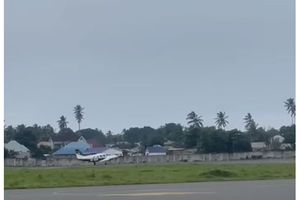Iranian missiles hit Israeli hospital, causing major damage and multiple injuries

What you need to know:
- In retaliation, Israel launched precision strikes targeting Iranian military and nuclear-linked sites, including facilities in Arak and Natanz. Israeli officials insisted the counterattack was measured and focused solely on military assets. The International Atomic Energy Agency later confirmed that no radioactive materials were released following the strikes on the Arak site.
Iran’s latest missile barrage against Israel has resulted in significant damage to Soroka Medical Centre in Beersheba, one of the largest hospitals in southern Israel. The incident marks a disturbing escalation in hostilities, with civilian infrastructure now being directly affected.
According to hospital officials, a missile struck the facility’s surgical wing early Thursday morning. Fortunately, a pre-emptive evacuation of critical departments — including oncology and urology — had taken place the day before, sparing lives. Nevertheless, dozens of people, including hospital staff and nearby civilians, sustained injuries. At least six individuals remain in serious condition.
Authorities in Israel have strongly condemned the attack, describing it as a “deliberate and calculated assault on civilian infrastructure.” Prime Minister Benjamin Netanyahu issued a defiant statement, promising that “the Iranian regime will pay a heavy price.” Defence Minister Israel Katz went further, holding Iran’s Supreme Leader personally responsible.
In retaliation, Israel launched precision strikes targeting Iranian military and nuclear-linked sites, including facilities in Arak and Natanz. Israeli officials insisted the counterattack was measured and focused solely on military assets. The International Atomic Energy Agency later confirmed that no radioactive materials were released following the strikes on the Arak site.
Meanwhile, Tehran claimed its missile campaign was aimed at strategic military targets inside Israel and dismissed allegations that the hospital was a deliberate target. Iranian officials maintained that any civilian casualties were “unintended consequences” of military operations.
The global response has been swift. The United Nations called for immediate de-escalation, while the United Kingdom and United States reiterated Israel’s right to self-defence, urging both parties to refrain from targeting non-combatants. Russia and China, on the other hand, expressed concern over the growing regional instability and called for urgent dialogue.
Back in Beersheba, parts of Soroka Hospital remain operational, though elective procedures have been suspended. Emergency services continue under heightened security, with parts of the facility cordoned off due to structural damage. Engineers are currently assessing the extent of the destruction, with early estimates suggesting that full restoration may take months.
The strike on Soroka is the most severe attack on a medical facility since tensions between Israel and Iran flared earlier this year. Humanitarian groups have expressed alarm over the increasing targeting of civilian sites, warning that the protection of medical infrastructure must be upheld under international law.
As the situation remains fluid, Israelis are bracing for further developments, while international observers closely monitor the potential for wider conflict.



